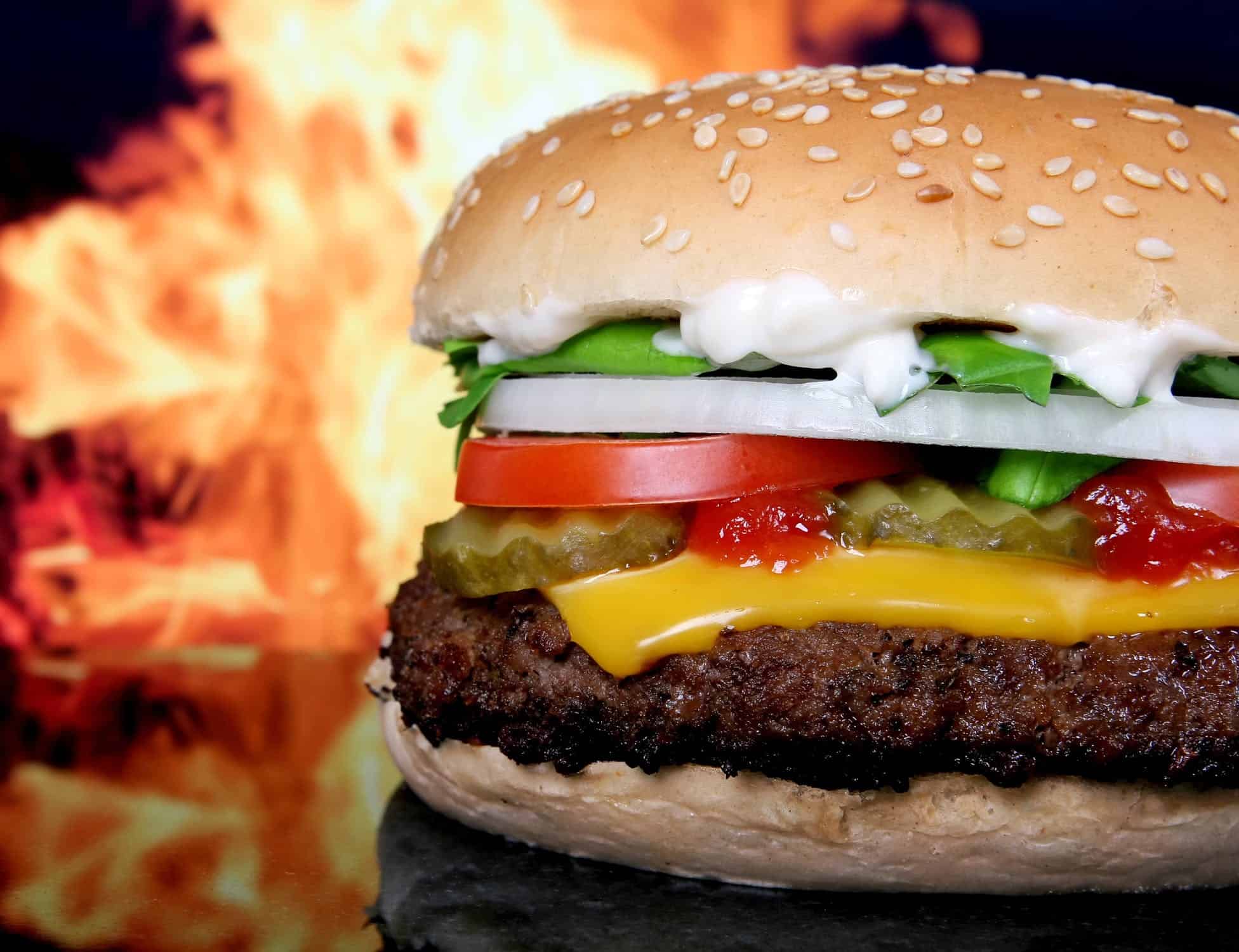How Your Diet Affects More Than Your Health

by Abu Shama
The Pitfalls of Excessive Eating
One of the factors that determine how well we utilise our time is dependant on our energy level. Energy is related to the food and drink we consume.
The Messenger of Allah (peace be on him) said:
‘The worst vessel that the son of Adam can fill is his stomach.’
The sunnah is to consume enough food to keep the body going, this is filling one third of the stomach with food, one third with water and a third for air.
Eat little, as excessive eating causes one to sleep long hours and waste the hours of the night. Eating a heavy meal before going to bed will cause you to become very tired, and it can make you miss the Fajr prayer. The Messenger of Allah (peace be on him) mentioned regarding the one who misses the Fajr prayer due to sleeping.
‘During your sleep, Shay’tan knots three knots at the back of the head of each of you, and he breathes the following words at each knot, ‘The night is long, so keep on sleeping,’ If that person wakes up and celebrates the praises of Allah, then one knot is undone, and when he performs ablution, the second knot is undone, and when he prays, all the knots are undone, and he gets up in the morning lively and cheerful, otherwise he gets up dull and gloomy.’ [Bukhari]
Eating light means you can get up quickly for Fajr, and feel light on your feet. Excess in eating and drinking is an indication of greed, weak self-control and self-indulgence, as well as a cause of bodily disease, laziness of spirit and clouded vision. In contrast, frugality of food and sleep is an indication of contentment and self-control, a cause of health, clarity of thought and sharpness of the mind.
In addition, excessive sleep indicates weakness and a lack of ambition in the affairs of this world and the next, causes laziness, hardening, heedlessness and death of the heart and waste of one’s life in that which is not beneficial. And excessive sleep is a result of excessive eating and drinking.
Sayyidina Luqman, the wise said:
‘O son! When the stomach is full, the mind sleeps, wisdom is silenced, and one’s limbs are reluctant to worship’.
Umar Ibn Al-Khattab said:
‘Beware of excessive eating, for it causes laziness in prayer, corruption of the body, and diseases. And limit your eating, for that is further from extravagance, healthier body and more conducive to worship. Indeed, the slave will never perish until he prefers his desire over his religion’.
Sufyan al-Thawri said:
‘Staying up the night is accomplished through eating little.’ Knowledge is not for the one who eats until he is full.’
Past Scholar’s Attitude to Food
Imam al-Haramayn [4th century AH], the teacher of Imam al-Ghazali said:
‘I do not eat or sleep out of habit, I rather sleep when sleep overtakes me whether in the day or night, and I eat when I need to regardless what time it is.’
A prominent scholar of the first century who understood the preciousness of time said:
‘The most burdensome time for me is when I must eat.’
Ubayd Ibn Yaish; the scholar of Imam Bukhari and Muslim said:
‘For thirty years I never had time to eat at night, my sister used to feed me while I wrote hadith.’
Muhammad Ibn Suhan, a Maliki scholar of the 2nd century, had a servant. Once he was in her house, and he was busy writing a book until the evening. When it was time for dinner, she asked permission to serve dinner. But he replied:
‘I am busy at the moment, after waiting for a long time, she started feeding him his dinner until he finished eating, while he continued working. He then continued to write until the time of fajr prayer. He turned to her and said: ‘last night I was too busy with my work, bring that which you have’ she replied: ‘by Allah, I fed it to you’ he said: ‘I did not notice’.’
Another scholar of the past who was in constant remembrance of Allah said:
‘At meal times, I feel as if my soul is about to leave my body, because eating keeps me away from dhikr’
He found the greatest pleasure in studying and seeking knowledge and he found the bodily appetites heavy on the soul.
Eating Well
If an individual consistently eats a healthy diet, their level of performance and concentration will be enhanced, the opposite might decrease one’s ability to concentrate.
The British nutrition foundation, which claims most people are unaware of the correct food to keep concentration levels high. Eating too much causes problems because the body has to divert energy in to digestion; it can make a person feel lethargic. Eating too little is also dangerous because a lack of food makes the body feel fatigued and more prone to sleepiness.
Food such as pasta, bread and fruit contain complex carbohydrates, which release a slow constant supply of energy to the body.
Snacks such as sweets, chocolate and biscuits are good for immediate energy release; however it only provides a brief energy boost before blood sugar levels fall again. A cup of strong coffee does not help either. Whilst the drink contains caffeine, it can energise the fatigued body but it will again have only a short-term effect. Instead, avoid drinking coffee at times when you are normally asleep because the body gets use to a routine.
This is a series compiled following lectures on ‘The Manners and Etiquette of the Teacher and the Students’. The course was based on a book written by Shaykh al-Islam, Badr al-Din Ibn Jama’ah and conveyed to us by our Shaykh Haytham Tamim.
Qadi al-Qudat, Shaykh al-Islam, Badr al-Din Ibn Jama’ah was born in 639 AH (1241 AD). Originally from Syria and later moved to Egypt. He was educated at Hama, achieved excellence in religious studies and jurisprudence, and became a leading promoter of the Shafi’i Fiqh. Eventually, he attained the high status of Shaykh al-Islam and held the high position of Chief Justice. Imam al-Dhahabi has observed that Qadi Ibn Jama’ah was well versed both in prose and poetry, and had left abundant notes on Fiqh, Hadith, Usul al-Fiqh, and Tarikh(History). He commanded respect and influence, and had a large number of students and followers. He died at Cairo in the year 733 A.H. (1332 A.D.), aged 94, and was buried by the side of the great Imam Shafi’i.
His book on the subject of Adab al-Alim wal-Mutaalim
It was in the year 672 AH (1273 AD) that Ibn Jama’ah completed this book as a guide for both students and teachers to help improve quality of their academic life and work.
Suggested Books:
Ibn Jama’ah – Etitquettes of Seeking Knowledge
Abd Al Barr – Jami’ Bayan Al Ilm
Al Khateeb Al Baghdadi – Al Jami’ li Akhlaq Al Rawi
Recommended Posts

Can playing with children be an act of worship?
February 21, 2023

Ghazali on remembering death III – aspects of the soul
February 17, 2023

Whomsoever Allah wishes good for…
February 08, 2022
